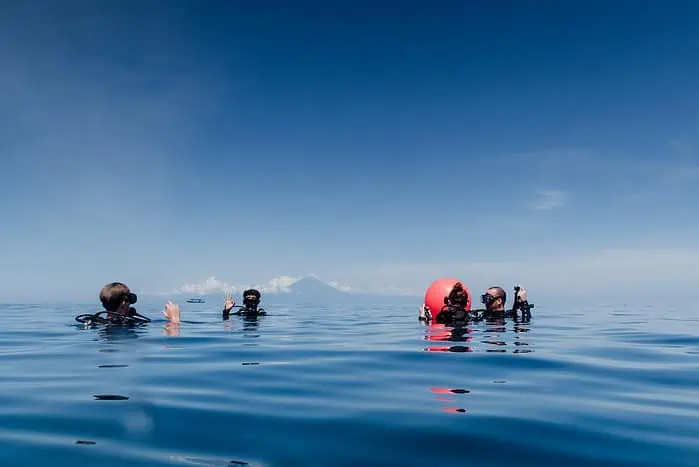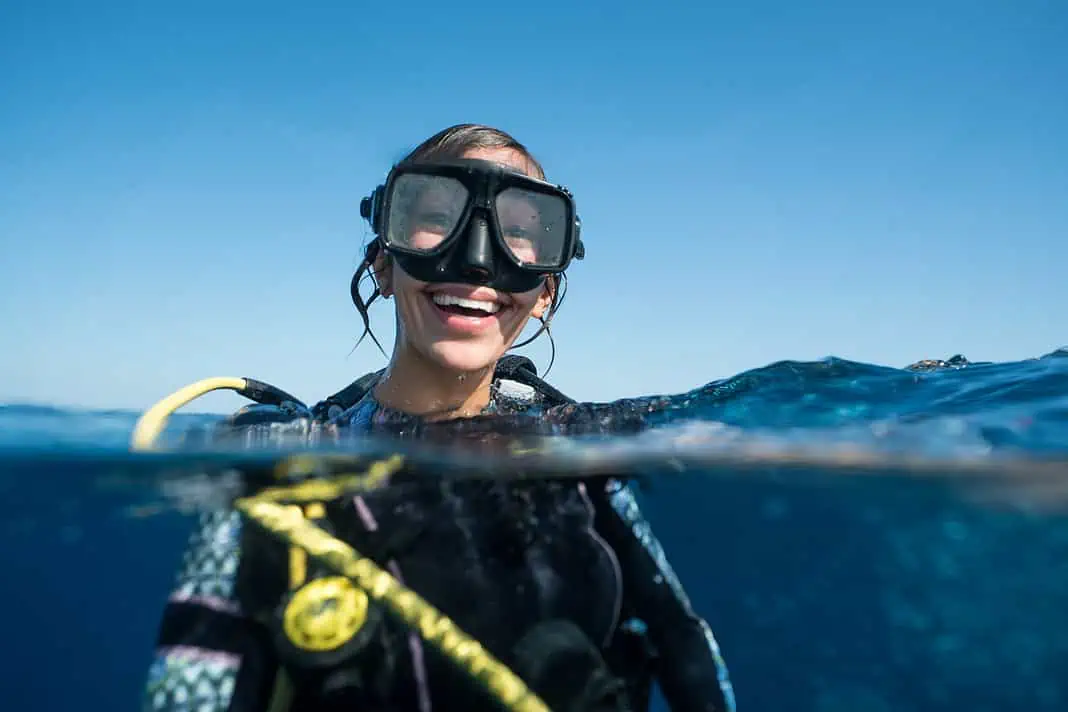If you dive, then scuba diving safety should be at the forefront of your mind. Divers dive to have fun and enjoy the aquatic realm. However, without scuba diving safety protocols and procedures, all those become impossible. So, what are the essential tips to ensure you have a safe dive and can focus on the fun and enjoyment?
Dive Planning and Communication
Having no plan and no communication is never a good idea, whether you are diving or going for your weekly shop without a list! Both of these are key to scuba diving safety and can be the difference between a fun, safe dive or an unpleasant experience, if not worse!
Dive Planning
The old saying in diving is Plan your Dive, Dive your Plan, and it is very good advice. Often, even when divers plan to dive, the minute they hit the water, they don’t stick to the plan and go their own way. This can be incredibly tempting when diving someplace new, but it is never a good idea. Even when conducting exploration dives, there are parameters and restrictions in terms of depth, turn pressure, and so forth. You should make an effort to make a dive plan and then execute your plan.

Review your Hand Signals
Remember to always go over the basic hand signals with your buddy. This is doubly true if you are diving with a new buddy or have not dived together for a while. Imagine two people trying to communicate, but one speaks Arabic, the other Thai; chaos will ensue! The same applies to underwater communication. When you make a signal to your buddy, you need them to be able to understand it ASAP. This process is much easier if you both dive together regularly, but a quick refresh is always wise if you haven’t dived for a while.
Check Your Gear Before Diving
Okay, the truth is that pre-dive safety checks seem boring and unimportant and just get in the way of getting on with the dive. This is even worse if you are in a tropical location, standing in the sun and slowly cooking in your wetsuit. The last thing you want to do is spend more time in the sun; the water looks cool and refreshing, and you just want to get in. As tempting as it is to scrub your pre-dive check, it is a crucial safety component and can mean the difference between life and death or severe injury.
Scuba Diving Safety: Service your gear
Divers often overlook getting their gear serviced regularly (a mere once a year generally). It is time-consuming and expensive, and you can’t dive when your gear is being serviced, you can’t dive. Having a problem underwater because your gear failed is an entirely avoidable situation. Therefore, to improve your scuba diving safety, get your gear serviced regularly.
Know Your Limits
Knowing your limits will have the single biggest impact on your scuba diving safety record. Limits are like anything else in life; with time, patience, and training, you can push your limits safely and do the dives you want!
Scuba Diving Safety: Depth
By far, the biggest culprit when it comes to diving fatalities is depth. The numbers don’t lie, and diving too deep leads to enormous problems, from running out of air to rapid ascents, oxygen toxicity, narcosis, and more. These singularly or combined lead to very bad outcomes for you and possibly your buddy. Diving within your training and psychological limits. If you want to go deeper, great, do the courses, get trained, and enjoy the abyss safely!
Scuba Diving Safety: Physical Limits
Learn your physical limits and what you can physically cope with. This applies to underwater and getting to the water and in and out of the water. For instance, the dive may be a simple shore dive; however, it starts and ends at the bottom of a 50m/150ft cliff face with lots and lots of steps. Are you physically able to handle the steps? Remember going down is the easy part. The hard part is heading up the steps with a load of wet gear after long dive.
Scuba Diving Safety: Training Limits
Always stick within your training limits; they are there for a reason and are a key component of scuba diving safety protocols. If you have no overhead environment training, do go in an overhead environment. If you do not have deco training, do not plan to do deco dives on the fly. Although this may seem incredibly obvious, it is surprising how many divers have gotten themselves into difficulty by diving beyond their training limits and encountering a problem they are not used to.
Master Buoyancy Control
Scuba diving safety and buoyancy control go hand in hand. The more you perfect your buoyancy, the safer diver you will be. Not only will you protect the environment with your skills, but you will also end up protecting yourself. If your buoyancy is imperfect, it is pretty easy to drop slightly and impact coral or something worse, like a scorpionfish or stonefish. While the outcome in the first is minor with some cuts and scrapes, In the second, the result is much more severe, not to mention the environmental damage.
Good buoyancy control is key to safe diving practices. It allows you to stick to your plan, execute safety stops, hover when needed, and avoid problems below or above you. Mastering Buoyancy gives you total control over your space in the water and is a must for dive safety!
Dive with a Buddy
Solo diving is attractive and has been gaining popularity in recent years. However, it does carry a slightly bigger risk than diving with a buddy and involves more equipment and planning. So, if you want to lock down your scuba diving safety protocols, remember to always dive with a buddy. Two people are always far more capable of dealing with the unexpected. Plus, it removes some psychological stress of being alone underwater in a situation heading south rapidly. As a bonus, it is always more fun to share your underwater experiences with a buddy, giving you a great conversation topic after the dive.

